This article is part of a larger series that focuses on diversity and equity in marketing. As a company, we are committed to identifying actions we can take in the fight against racism and injustice, and elevating BBIPOC voices is paramount to inspiring change. Follow along and read other posts in this series here.
This post is authored by Gabrielle Lawrence (she/they), Writer, Editor, & Designer.
Perhaps abuse is a strong word. The poet in me is overly conscious of that choice. I’m also fighting against my conditioning here. I know from lived experience, history, the media, education, and so on, that a facet of white fragility is it’s sensitivity and aversion to the language of violence—especially when it is responsible for said violence. It reminds me of gaslighting.
However, language is power and it gives us space to demand accountability. Abuse does refer to the mistreatment of another living being, and we know that violence is not only or always physical. This argument, that employers abuse minorities in white spaces, is geared toward companies without an evolving Diversity, Equity, and Inclusion core, or companies that practice performative inclusivity.
This can manifest as:
- Going through the inception and growth of a business without so much as developing a mission or acknowledgment of diversity, equity, or inclusion, let alone structures that back up the mission.
- Companies that say they “value” DEI but don’t have cultures or employees that reflect those values.
- “Doing diversity” in a performative way that is patchy, only in reaction to complaints to quell unrest, not rooted in research or calls to action, not created by or in collaboration with the populations it serves, or is a “value” on the surface but always internally backlogged, never implemented.
How white spaces lead to burnout and resentment
Having to “fit” into a culture that doesn’t take your experience into account creates the perfect conditions for burnout and resentment. In response to these arguments, I often hear people rebuttal:
- “It’s just a job”
- “That’s the way it always is”
- “Your place of work is not your identity or political home”
- “Sometimes you just have to show up and be quiet”
- And even, “Just let it go. HR is not your friend.”
Sometimes it feels like they’re right; maybe I should resolve to keep my head down and my mouth shut when I experience bias and oppression at my job. I should accept and actively engage in double consciousness as I navigate predominately white workplaces.
Maybe I should allow my self-image, mental health, growth opportunities, and happiness to suffer—for a paycheck—from people who, upon hearing of my sudden death or departure, wouldn’t even blink before trying to fill my vacancy.
The effects of white spaces don’t begin on day one
Furthermore, consider every part of the process: having access to the “right” education and communities, the job search itself, the hoops of the recruiting process, salary negotiation, the onboarding and socialization process, and the list goes on.
The workplace isn’t a walk in the park for anyone, especially during major transitions and crises like the pandemic, but I find it harder to stay docile when I realize that my fellow white employees have the luxury of a completely different experience. Especially those without intersecting identities.
For white colleagues, going to work does not mean confronting the same roadblocks, mental stressors, or disrespect. At minimum, the culture of the environment and the market are most often catered to their experiences. This also makes it easier for white colleagues who notice and acknowledge these inequities to stay complicit because they are not as severely impacted.
Consider the harmful ways these disparities can manifest for minorities on the job:
- Being pressured to create or be the representation where there is none. (Though this evolves the organization and strengthens the company’s relevance, these employees may not be compensated for their additional work.)
- Finding themselves educating their employees or managing others’ feelings and projections, especially when workplace sensitivity training is often insufficient.
- A white coworker can show up without being the butt of microaggressions or the token, can feel that they have ownership and belonging in the space, may not feel taxed with over-performing for the same respect as their coworkers, and a host of other interpersonal inequities. However, minorities are expected to live with this day to day which can have long-term and negative effects on a person’s health.
- Advocating or boundary setting can often make employees feel alienated, unsupported, or targeted when white environments are hostile (covertly or subtly) to underrepresented minorities.
Wrap up
If a job description were to be tailored to a person of color truthfully, it would look quite different. Responsibilities would include things like experience collaborating with people who aren’t conscious of their privilege or prejudice, must be extremely familiar with white culture and have a similarly crafted personality, must be comfortable sharing insight into your culture when it suits us best or makes us money, have a willingness to work harder to combat our prejudice and earn our respect, etc.
Of course, these could look differently at every job depending on the nature of the work, styles of communication, and structure of the company. Nevertheless, the disproportionate asks of employees whose identities are at the intersection of BIPOC, LGBTQ, and disabled communities is shameful, especially considering the impact of the pandemic outside of work on these populations.
This should not be normal or sufficient. In the wake of everything we’ve seen the past four years, we should also be taking radical action towards building safer workspaces. Not just because companies know sustainable DEI has a positive impact on profit, but because we matter.
 Gabrielle Lawrence (she/they) is a freelance writer, editor, and designer from Southern California. They are well-rounded with experiences in marketing, software development, publishing, higher education, and more. She is a contributing editor for The Tenth Magazine and Harpoon Books. Their poetry has been nominated for Best of the Net and Best New Poets. They are an interview correspondent for TERSE. Journal and they had the honor of being the former EIC of Linden Avenue Literary Journal. Gabrielle loves music and yoga. Learn more about their work and services at gabrielle-l.com.
Gabrielle Lawrence (she/they) is a freelance writer, editor, and designer from Southern California. They are well-rounded with experiences in marketing, software development, publishing, higher education, and more. She is a contributing editor for The Tenth Magazine and Harpoon Books. Their poetry has been nominated for Best of the Net and Best New Poets. They are an interview correspondent for TERSE. Journal and they had the honor of being the former EIC of Linden Avenue Literary Journal. Gabrielle loves music and yoga. Learn more about their work and services at gabrielle-l.com.
Visit this page to see more in the series, or check back in a week for our next guest post.
Marigold is a family of global marketing technology brands including Campaign Monitor, CM Commerce, Delivra, Emma, Liveclicker, Sailthru and Vuture. By joining together these leading brands, Marigold offers a variety of world-class solutions that can be used by marketers at any level. Headquartered in Nashville, TN, Marigold has United States offices in Indianapolis, Los Angeles, New York City, Pittsburgh and San Francisco, and global offices in Australia, London, New Zealand and Uruguay.





